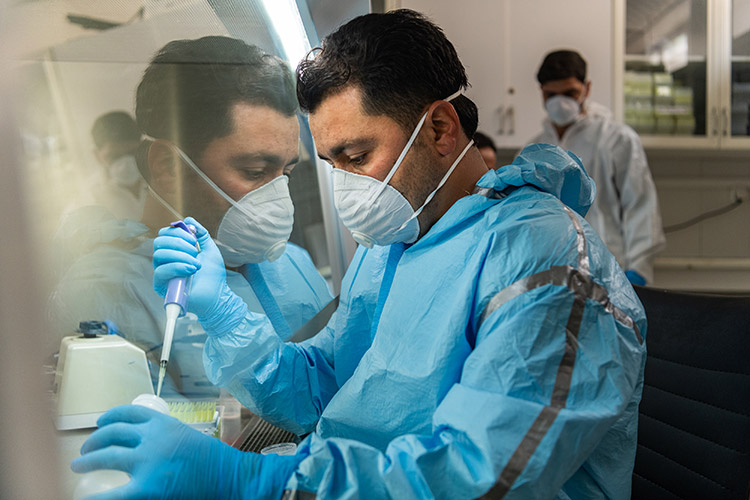
Cairo, 31 May 2021 – More than 10.1 million COVID-19 cases and 202 121 deaths have been reported from 22 countries across WHO’s Eastern Mediterranean Region since the first documented case on 29 January 2020.
“This is a troubling milestone for everyone in our Region. Despite all our efforts over the past 16 months, we have not yet controlled the pandemic and there is much work to do. We all have a role in reducing infections and deaths by acting responsibly to protect ourselves and our loved ones,” said Dr Ahmed Al-Mandhari, WHO Regional Director for the Eastern Mediterranean.
As of 30 May, almost 63% of all COVID-19 cases were reported from Islamic Republic of Iran, Iraq, Jordan, Pakistan and United Arab Emirates, and about 72% of total deaths were reported from Islamic Republic of Iran, Pakistan, Iraq, Egypt and Tunisia.
Controlling the pandemic across the Region has been challenging due to the emergence of new variants of the virus, COVID-19 fatigue, and the failure of many people to adhere to mask wearing, social distancing and other personal protective measures.
Some countries are opening up and easing travel and social restrictions, increasing the risk of a resurgence of cases. Governments need to monitor the impact of the relaxation of such measures on disease trends, and make adjustments accordingly.
In parallel, many countries are lagging behind in vaccination rates, with several countries across the Region only vaccinating less than one percent of their population. WHO is working with these countries and international partners to ensure a more equitable distribution of life-saving vaccines.
“We have very effective tools that can help us bring this pandemic to an end. We count on everyone – governments and individuals alike – to continue applying and observing the proven public health and social measures that we know work,” Dr Ahmed Al-Mandhari added.
In efforts to control the pandemic, WHO’s Regional Office for the Eastern Mediterranean works closely with all countries in the Region to monitor the epidemiological situation, scale up surveillance and testing capacities, deliver medicines and medical supplies, support vaccinations, engage with partners for readiness and response, and conduct technical support missions to countries.


